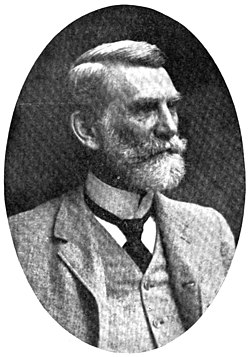The Village: A Journal for Village Life/Volume 1/Number 4/Institute of Social Service
The American Institute of Social Service is Mr. Josiah Strong, and Mr. Strong is the Institute. It is a great clearing house of facts and information on all topics within the meaning of the elastic term social service. Mr. Strong and his collaborators in all countries, gather up information on all subjects connected with human uplift, more particularly material uplift, collate and arrange it, and furnish the results to any in the round world who need and ask for them.
The basic principle of the Institute of Social Service is the study of the science of life by the putting on file of all manner of human experience, so that everyone may know and profit by what others have thought and done. The celebrated Musée Social of Paris confines its work to industrial problems alone, but the American Institute of Social Service extends its researches to the whole social problem, with the definite object of social and industrial betterment in every phase of life.
The Institute is endeavoring to accomplish this comprehensive survey of social conditions by means of special commissions and trained investigators sent out from the home office, by collecting thousands of books, pamphlets, clippings and photographs bearing upon any subject under consideration as belonging to social advancement, and by the active cooperation of collaborating members in foreign countries. The knowledge thus gained is disseminated by correspondence, by the press and by placing at the disposal of the inquirer all the literature and photographs obtainable that deal with the topic under discussion, and lending expert aid in formulating plans of improvement. If a large manufacturer desires to try the experiment of prosperity-sharing by improving the conditions of his factory or by establishing an industrial village, he may learn exactly what has been done for industrial betterment by Krupp, the great German gunmaker, by Lever and Cadbury at the model industrial villages of Port Sunlight, near Liverpool, and Bournville, near Birmingham, in England; or he may be fully informed as to the model industrial conditions at Hopedale, Dayton, Pittsburgh and other places in our own country. He may judge for himself why certain experiments have succeeded and why others have failed, and may profit, if he will, by everything that has been done or attempted in the line of action he contemplates.
The alert Japanese, who have made their country the modern world-wonder by carrying out to its fullest extent this idea of profiting by the experience of others, have not been slow in availing themselves of the service of this Institute, and are now organizing an Institute of their own, modeled on the American original. Not long ago, the mayor of Kyoto sent a request for information concerning soldiers' homes, as he had collected a fund of one million five hundred thousand yen for the protection of the disabled soldiers of Japan. The Institute forwarded him about four hundred and sixty photographs and photogravures, and over eighty pamphlets and documents containing specialized information concerning this subject in America, France and Germany.

JOSIAH STRONG
A department lately instituted, and one which promises to be of much value in places far removed from the great centers, is the sending out to village clubs, churches, social organizations, etc., reading lectures on subjects of social improvement, illustrated with lantern slides made from photographs selected from the thousands at the Institute. Very often these small societies cannot afford to have a lecturer visit them, and yet are most anxious and interested to obtain all the information possible on subjects which are to them of vital importance. Any member of the club with this aid from the Institute can deliver a reading lecture on the subject concerning which information is desired.
![]()
This work is in the public domain in the United States because it was published before January 1, 1929.
This work may be in the public domain in countries and areas with longer native copyright terms that apply the rule of the shorter term to foreign works.
![]()
Public domainPublic domainfalsefalse